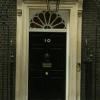I'd wish to prove that Bond to some extent reflected the rebelliousness of the 1960s generation but i lack sufficient evidence. Are there examples from the novels when Bond rebels against M/ MI6 / government etc.?
Are there any examples of Bond's rebelliousness in the novels?
#1

Posted 29 June 2015 - 11:43 AM
#2

Posted 29 June 2015 - 02:52 PM
#3

Posted 29 June 2015 - 06:28 PM
I'm not sure if this counts, but; in the short story Quantum Of Solace, which is not really a secret service story at all and is told to Bond, he has just come off a mission which involved the Cuban "rebels" - who became the government headed by Fidel Castro - and it seemed that 007 had a certain sympathy for them rather than the Batista regime they were trying to topple.
Which might seem surprising given that Bond had spent much of his service career battling Soviet communism. On the other hand, at the time - mid to late 1950s going on early 1960s - even elements in the US government, if not exactly sympathetic to Castro were not openly hostile to him and his rebel forces either. Of course, that soon changed.
Bond never reflected the "rebellious spirit of the 1960s" in the sense that most people tend to understand it - the so called "counter culture" of that time. But as Dustin points out, there were moments when he would rebel against his immediate superiors.
#4

Posted 29 June 2015 - 06:54 PM
As early as Casino Royale, Bond preferred to be controlled obliquely through a remote station (eg: London-Kingston-Royale) as it gave him a sense of independence and some latitude in how long he could take to reply to communications.
In DAF he defied the Spangs' orders about how much gambling he did in their casino, just to shake things up a bit.
After defeating Dr. No, Bond rather impudently reported that a .38 S&W was 'ineffective against a flame-thrower' as he was still smarting over the replacement of his beloved old .25 Beretta (which, admittedly, would have been even less effective).
He would frequently finish a report by presuming to gratefully accepting two weeks leave that hadn't been offered, but to which he felt entitled.
And of course Bond's diplomatic mission in Japan in YOLT became less important to him than his pursuit of Blofeld, for he knew that were he to report Blofeld's presence then the big man would be arrested and he would be denied his personal revenge.
Even John Gardner would occasionally have Bond display 'dumb insolence' in response to a question from M that he didn't want to answer.
But as for 60's rebellion against the Establishment, Bond was an agent of the Establishment - one of the reasons George Lazenby lost interest in the role.
As a product of the War years, staunch anti-communist and writer in the 1950s, Fleming was not much inclined to change his views as the 60s counter-culture gained momentum. As has been remarked elsewhere (by our own Jim, I believe, among others), Bond was becoming increasingly curmudgeonly and indistinguishable from M as time passed.
Anyway, Fleming himself passed before the 'beatnik' movement went from being a 'problem' to the norm.
#5

Posted 30 June 2015 - 10:32 AM
One clear example of Bond rebelling against orders was the end of the Living Daylights short story, where Bond makes the choice not to kill the Russian sniper, and expresses some hope that M might fire him for the choice.
(Although as has already been stated, Bond was never exactly a symbol of rebelling against the establishment in the novels, and alot of emphasis was placed on Bond's devotion and admiation of M.)
#6

Posted 02 July 2015 - 06:59 AM
I agree with most of the posters above: Bond cherished his independence and sought or created room for ample discretion to employ his own judgement on missions. He could also be insolent or uncooperative with his handlers. But in no way was any of this related to the 1960s counter culture and the concomitant general challenging of established authority and social mores. These outlooks and attitudes of Bond were rooted in his character and personality.
Remember Bond was a member of 'the Greatest Generation' and in many ways he was at odds with the rebelliousness of the 1960s generation. If anything the Bond of book and of '60s film is somewhat of a conservative and a snob. He identifies with the establishment and with 'order' and the prescribed social roles. As a WWII veteran and defender of the British Empire he looks with disdain upon Hippies, Women's Lib, draft dodgers, conscientious objectors, civil disobedience, pop music such as The Beatles etc.
This can make Bond seem a little bit of an enigma, especially as he was at comfort moving through all echelons of society in Britain and overseas, something most class-bound Englishmen of his time could not claim, and also when juxtaposed against his licentiousness and somewhat carefree attitudes regarding sex and drugs. Yet it is easily explained if Bond is viewed as the maverick he is. He would have been that way in any other decade as well. Someone who is worldly and a bit Dionysian in his leisure habits, but has dedicated his life to the State and the defense of Queen and Country.
The Bond parody Derek Flint was definitely a representation or manifestation of many Sixties trends such as free love, psychedelia, Eastern thought and meditation. Austin Powers also mines this vein. But Bond in the Sixties remained somewhat aloof and true to himself while successfully navigating the currents and turmoil of the social change the Sixties brought. He is adaptable and versatile where needed but still rather set in his ways and not easily influenced by faddish cultural factors.
While Connery brought a certain insouciance and swagger to the role that was arguably absent from Fleming's material, the character still continued to represent many traditional British values including a stylish but conservative approach to food, fashion, pop culture and love of country.




